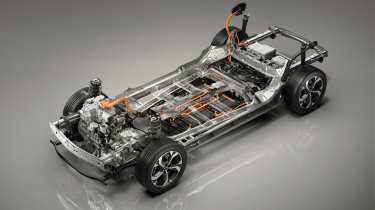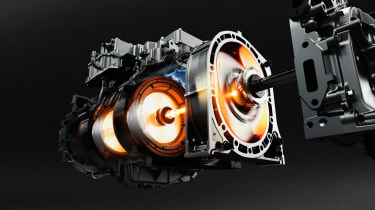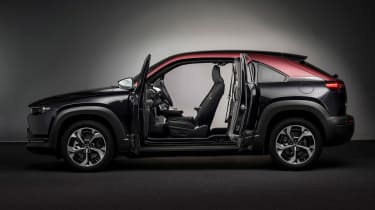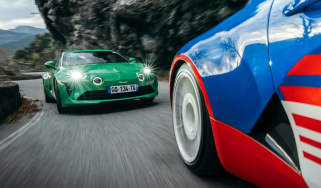Mazda MX-30 E-Skyactiv R-EV revealed – the rotary is back
The Wankel rotary is once again in production, with an innovative new application
Mazda is once again manufacturing the rotary engine, but before you get too excited thinking it’ll be found in a sporty Mazda RX-7 successor, best temper those expectations. That’s because the new rotary engine is being used in the MX-30 EV plug-in hybrid as a small and innovative range extender.
As a result the new rotary engine is a much lower-output unit than Mazda’s last twin-Wankel unit that powered the RX-8 sports car. Condensed down to a 830cc single-rotor unit, it produces 73bhp at 4700rpm and 85lb ft of torque slightly lower down the rev-band at 4000rpm. Being integrated into a range extender-style plug-in hybrid, the rotary engine doesn’t actually drive the front wheels, instead acting as a generator to both recharge the batteries when they’re depleted and provide extra current for the 166bhp electric motor.
The rationalisation for developing this all-new rotary engine comes not from its outright performance, rather its compact packaging and smooth running. In being independent from the driven wheels, it also means that Mazda’s able to finely control the warm-up and running parameters, ensuring that the high fuel consumption and longevity issues that have long plagued rotary engines can be managed.
Mazda has still made some advancements in its hardware, starting with the combustion chamber’s side housings which are now made of aluminium rather than steel. The rotor itself has thicker 2.5mm tip seals, meanwhile the inner sides of the trochoid surface (the inner lining of the combustion chamber) and rotor itself are now finished in a new lining that reduces friction, wear, and therefore improves efficiency.
A big step forward has also been Mazda’s swap from port to direct injection, allowing for a cleaner burn throughout the entire combustion process. To speed up the initial warm-up phase, Mazda has fitted an exhaust gas recirculation system that is used to heat-soak the combustion chamber from the outside, something that’s especially important as the engine will switch on and off often depending on the chosen driver mode.
The rotary’s used in conjunction with a 168bhp electric motor that directly powers the front wheels, a 27bhp increase on the standard MX-30 EV. This small bump in power reduces the 0-62mph time by 0.6sec to 9.1sec, and the top speed is limited to the same 86mph. Despite a whole combustion powertrain being added to the MX-30’s packaging, its EU weight is only up 58kg to 1788kg.
Power for the e-motor is drawn from a 17.8kWh battery pack that runs on a 355V electrical system. Mazda estimates a 52 mile range before the rotary will need to kick in, extending total range to 373 miles as the fuel tank is a chunky 50-litres. This equates to 282mpg and 21g/km of CO2 on the WLTP cycle, but it’s a figure that will heavily depend on how frequently you charge it.
Peak charging capacity is 36kW on a DC charger, which will charge the battery from empty in around 25mins. AC charging on a 7.2kW home wall-box will take more like 90mins.
There are three driver modes to choose from: EV, normal and Charge, each doing largely what they say on the tin. Regardless of the chosen mode, a full-throttle kickdown will spark the rotary to life in order to generate peak power.
These elements all sit under a relatively mainstream crossover body, with the exception of the RX-8-inspired suicide doors and cork-board interior trim. But the MX-30’s interesting parts lie under the bonnet, somewhere Mazda continues to pursue an eccentric development path.






